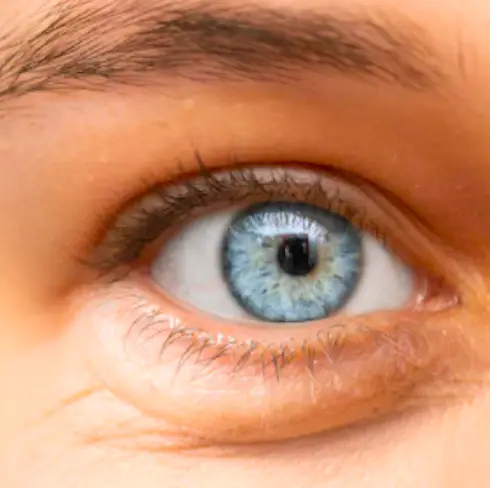Sparkling water or carbonated water is water that contains air bubbles to create the bubbly effect. Its popularity comes from its refreshing taste and low calorie content, making it healthier than sugary soda. However, there are concerns about its impact on dental health and hygiene.
Carbonated water is an acidic drink that can worsen symptoms over time, especially when consumed in large quantities. In addition, you may have problems with gas or gas because it contains carbon dioxide. However, soda can be a great addition to hydration, especially when included in a balanced diet.
It’s refreshing, fizzy, and often flavored, making it a preferred choice for those looking to stay hydrated without the calories. But is sparkling water actually good for your health? Let’s explore the facts to better understand how sparkling water fits into a healthy lifestyle.
Health Benefits of Sparkling Water
Some sparkling waters may contain added flavors, sweeteners, or acids, which can impact their health profile.
1- Help Relieve Constipation
Your gut health is affected by many factors, including exercise and diet. A healthcare provider can guide your health and gut health.
2- Hydration Without Added Calories
Sparkling water is better than sugary drinks. It provides the same hydration as regular water without the extra calories, sugars, or artificial sweeteners often found in sodas and juices.
Proper hydration is important for many aspects of your health and plays an important role in weight management. A good drink to support weight loss. Drinking soda can help curb the urge to drink sweetened beverages, such as water or soda, to make it easier to follow a diet with controlled calories.
In addition, carbohydrates can suppress the feeling of fullness, which helps to reduce the amount of calorie intake.
If you find plain water boring, sparkling water can make staying hydrated more enjoyable.
3- Potential Dental Benefits
For people who tend to drink acidic sodas, replacing them with sparkling water can help protect tooth enamel, the protective outer layer of your teeth. Sparkling water has a much lower acidity than sugary sodas, which are known to erode enamel. While it’s mildly acidic, it’s far less harmful than other fizzy beverages.
While sparkling water is generally safer for teeth than sugary drinks, it’s still important to practice good oral hygiene and drink it in moderation. Using a straw or drinking it with meals can further reduce contact with your teeth, minimizing any potential risks.
The carbohydrates in soda help freshen breath by increasing saliva production. Saliva plays an important role in neutralizing acids and removing food particles, helping to maintain oral hygiene and preventing bad breath.
Risks and Downsides of Sparkling Water
Many of the risks that can be caused by drinking soda can be reduced by drinking it at the same time as other hydrating drinks. However, there are some risks to consider.
1- Bloating and Gas
The carbon in sparkling water can cause gas and bloating in some people, especially when consumed in large quantities. People who experience gas when drinking carbonated water may want to switch to plain water to avoid the problem.
The added gas in the digestive system can sometimes slow down the digestive process, making it harder for food to move through the intestines. This can contribute to further bloating and discomfort, especially in people who are already prone to digestive issues like irritable bowel syndrome (IBS) or sensitive stomachs.
2- Added Sugars and Artificial Ingredients
For those who don’t like to drink water, sparkling water is a good choice. However, some types of soda and seltzer add a variety of flavors to improve the taste. Any flavored sparkling waters contain added sugars, artificial sweeteners, or preservatives to enhance the taste.
Although artificial sweeteners are acceptable when consumed in moderation, some studies suggest that excessive artificial sweeteners can be harmful to health. They can influence the gut microbiome, intestinal nutrient absorption, and even the anatomy of the gastrointestinal tract.
Although rare, some carbonated drinks contain added sugar. Those who monitor blood sugar levels to control diabetes or other chronic health problems may want to avoid drinks with added sugar.
If you want a healthier option, check the label for added sugar and artificial ingredients.
3- Not a Complete Substitute for Plain Water
While sparkling water is a good alternative to sugary drinks, it shouldn’t entirely replace plain water. The body requires water for essential processes, and some studies suggest that plain water is more effective in certain hydration processes compared to sparkling varieties.
Drinking a mix of both can help you stay adequately hydrated without missing out on the refreshing qualities of sparkling water.
The pH value of popular sparkling water brands:
- Although carbonated water is less acidic than soft drinks, it is more acidic than distilled water.
- Drinks with a pH below 5.5 can reduce plaque and tooth decay.
- For reference, the pH of most sodas is 2.5-3.5
1- San Pellegrino: pH around 5.6 – 5.9
2- Perrier: pH about 5.5
3- LaCroix: pH approximately 3.0 – 4.0
4- Topo Chico: pH about 4.0
For most people, sparkling water is a healthy, enjoyable, and hydrating option. It offers a calorie-free, sugar-free alternative to sodas and other sugary drinks.
Do you enjoy drinking sparkling water, and have you noticed any benefits or drawbacks when it comes to your health? Share your thoughts and experiences!








